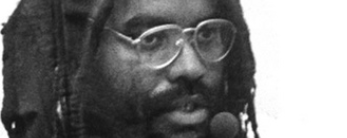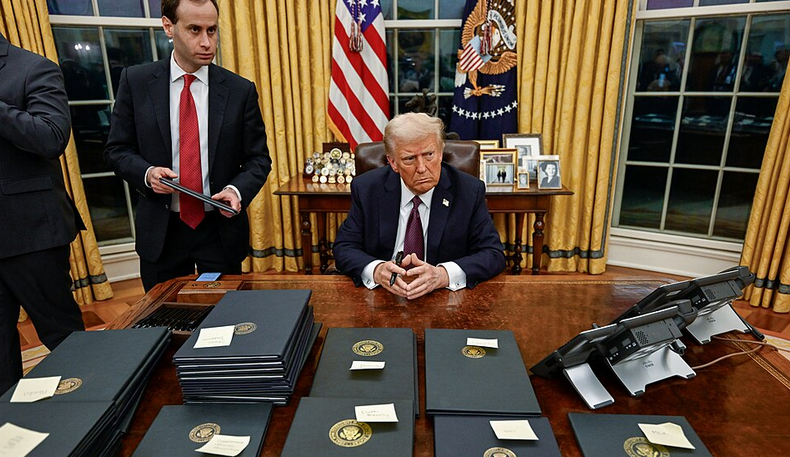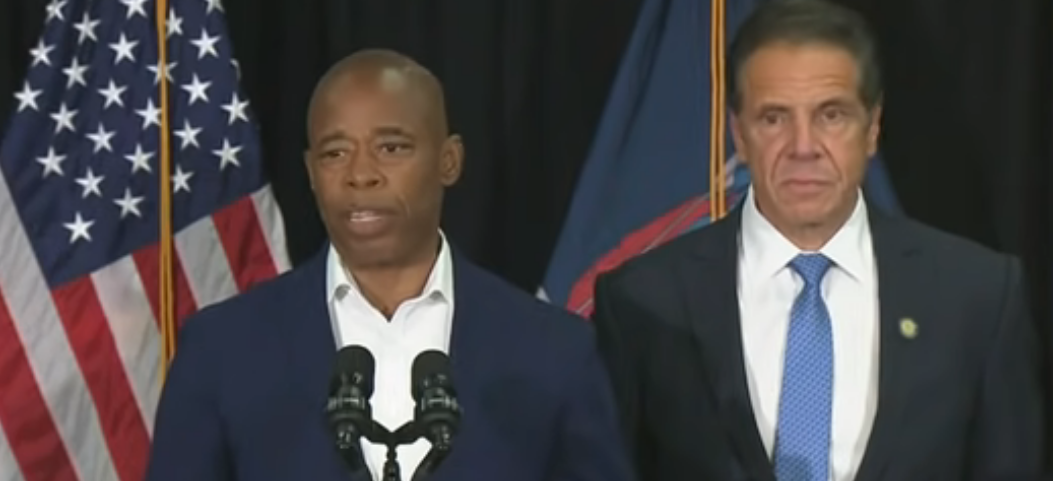Abu-Jamal. Photo–Flickr.
[The Campaign To Bring Mumia Home]
On April 30, Judge Leon Tucker’s Philadelphia courtroom was packed with Mumia’s supporters and a row of Fraternal Order of Police accompanying Maureen Faulkner, in expectation of District Attorney Larry Krasner’s position on Mumia Abu-Jamal’s pending Post Conviction Relief Act (PCRA) petition.
Abu-Jamal’s challenge to the judicial conflict of interest and bias of former PA Supreme Court Chief Justice Ronald Castille in denying every appeal filed by Abu-Jamal from 1998-2012 has been in the court for over a year.
In January 2018, DA Krasner’s office promised a “policy statement” and a decision on whether to vacate Abu-Jamal’s appeal denials after its review of prosecution files. Their office delayed their response until the April 30 hearing.
DA Krasner’s assistants announced in court that evidence of Castille’ bias was not found, additional discovery was asked for by Mumia’s attorneys, new legal filings were scheduled and the next court date for formal argument in front of Judge Tucker is set for August 30.
Bret Grote, Esq. Abolitionist Law Center Legal Director, said “In its failure to recognize that Ronald Castille played an active role in pursuing the execution of Mumia Abu-Jamal the new District Attorney’s office headed by Larry Krasner, is failing to do what justice requires. It is continuing the position of his predecessors, to the satisfaction of the Fraternal Order of Police.”
The Mobilization 4 Mumia and its participating organizations are calling for an ALL OUT MOBILIZATION to FREE MUMIA ABU-JAMAL!
Hundreds of people, youth and decades-long Mumia activists from prisoner rights, community and political organizations turned out at the Filbert and 13th street Courthouse on April 30, to call for freedom for Mumia, then rallied and marched in opposition to the Krasner’s decision.
Thousands of people, including labor activists, have signed petitions initiated by the Foundation Franz Fanon and the French Collective Libérons Mumia and held rallies in cities around the world. In Philadelphia meetings, showings of decades of films on Mumia were part of the international offensive of the last few months calling on Philadelphia District Attorney Larry Krasner to free Mumia Abu-Jamal and release DA and police files relevant to Abu-Jamal’s case. The former Philly Black Panther Party spokesperson, MOVE supporter and award winning journalist is now in poor health after 36 years in prison. Abu-Jamal is innocent and should immediately be released.
After the court hearing, Kavanagh told the press, “We haven’t found any evidence so far that Judge Castille played any role as DA in Abu-Jamal’s appeal of his conviction. It was just a run-of-the-mill appeals process.” There is nothing “run-of-the-mill” about an appeal on a capital offense case and Mumia’s was far from “run-of-the-mill” to Castille.
In 1986, while DA, Castille was voted “Man of the Year” by Lodge No. 6 of the Fraternal Order of Police. This organization has campaigned longest and hardest for Mumia’s execution. The FOP supported Castille for re-election in ries. 1989, and went on to endorse him in his campaign for the Supreme Court in 1993. In 1992, after Castille resigned as District Attorney and before his run for the PA Supreme Court, he was an attorney for the FOP. Castille was also District Attorney when the now-infamous training tape was made in 1986, which instructed new prosecutors on how to exclude Black people from juries.
In the days before the April 30 court proceeding, Maureen Faulkner (the widow of police officer Daniel Faulkner) was given prominent editorial page space in the Philadelphia Inquirer to urge Krasner to keep Abu-Jamal in prison for life. Faulkner seemed to be covered around the clock by every TV news station. Keith Cook, Abu-Jamal’s eldest brother, wrote a response but it was only published the day after the hearing. The Fraternal Order of Police threatened to intimidate Free Mumia supporters outside court on April 30 by holding a police line at the same time.
Maureen Faulkner and the FOP had nothing to worry about.
The majority of Philadelphia’s voters elected Larry Krasner as the District Attorney to put an end to mass incarceration. But Larry Krasner’s appointment of Ronald Castille to serve on his transition team was an ominous signal that Krasner would not change the core of racial and class bias inherent in the criminal justice system. Krasner was well-aware of Castille’s pro-death penalty, pro-cop and anti-defense positions taken as both a former DA and judge. Castille’s actions as prosecutor and then judge were the focus of the legal challenges made in the pending cases of Mumia Abu-Jamal and over a dozen other petitioners.
After months of promised policy review and the particulars of Abu-Jamal’s case, during the weekend before the April 30 hearing, the District Attorney’s PCRA Unit Supervisor Tracey Kavanagh issued a letter to Judge Tucker claiming that their “exhaustive search” had not found the missing Castille memo. It concluded: “Although Mr. Castille was the District Attorney when defendant’s (Abu-Jamal’s) direct appeal was pending and then presided as the Justice/Chief Justice over defendant’s PCRA appeals in the Pennsylvania Supreme Court, it is the Commonwealth’s position that he did not have the requisite ‘significant, personal involvement’ in a ‘critical decision’ in this case to give rise to a substantive due process violation as set forth in Williams.”
Longtime Mumia supporter Rachel Wolkenstein said “the hearing was a continuation “of the outrage of keeping Mumia, who is innocent and framed, in prison.”
Abu-Jamal’s petition before Common Pleas Court Judge Tucker is based on a 2016 U.S. Supreme Court decision, Williams vs. Pennsylvania, that found it unconstitutional for Pennsylvania Supreme Court Justice Ronald Castille to rule on an appeal case in which he had played a significant personal role when he was the Philadelphia DA. That constituted bias and conflict of interest; in effect, Castille would have ruled on his own earlier conduct.






